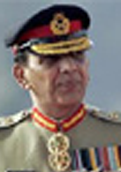India-Pakistan Dialogue: Cautious Optimism, Lots of Scepticism
Pakistan’s conciliatory approach towards India is tactical and could change rapidly if the army decides that its interests are better served through a more offensive posture.
- Sushant Sareen |
- July 13, 2011 |












